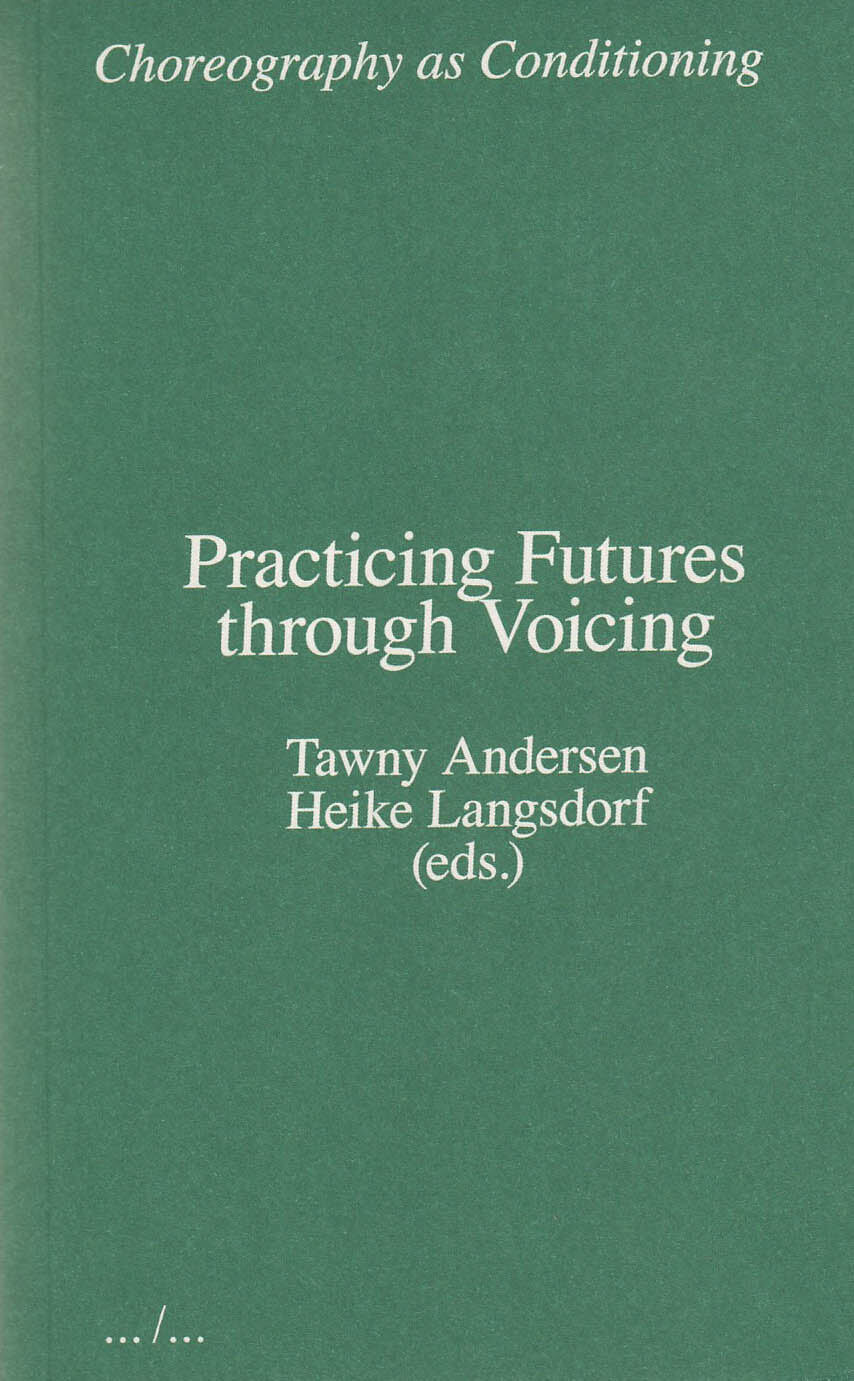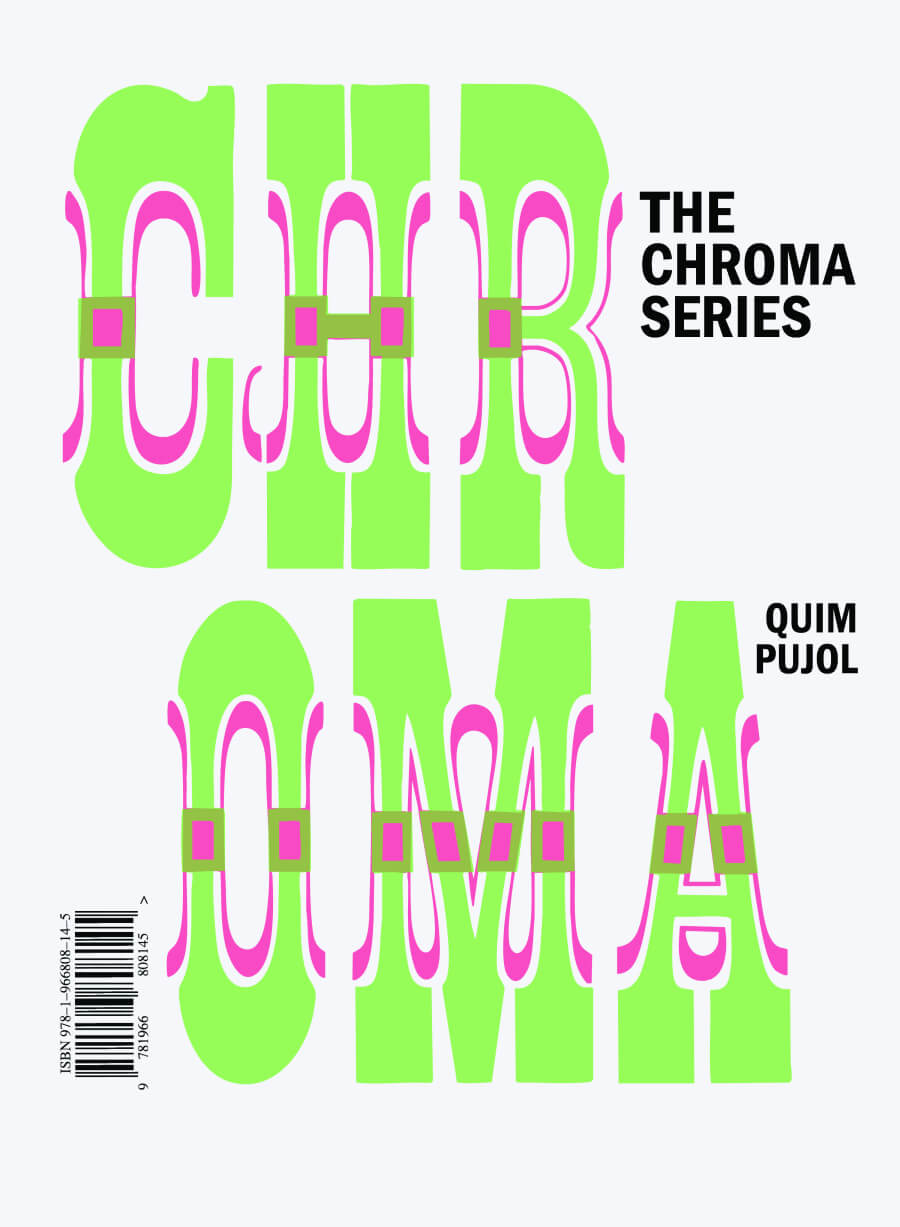
Choreography as Conditioning: Practicing Futures through Voicing
Tawny Andersen ed., Heike Langsdorf ed.
The books included in the series Choreography as Conditioning are rooted in a cycle of work sessions entitled CASC at KASK, in which students work together with invited guests. They explore the notions of choreography, understood as ways of organizing subjects in their surroundings, and conditioning in both art-making and society-making. Where, how, and by whom are things organized and what kind of landscapes of experience are made (im)possible by the practices we enact and encounter?
Practicing Futures through Voicing, the second book in this series, connects with the first book’s concern with how practices destabilize and (re)constitute the concept of conditioning. It does so by questioning how to process life in a way that allows us to create volume, take space, and find our (tone of) voice—first in our immediate surroundings and, through this, in the world as it struggles and moves toward ongoing futures.
October 2019
Language: English






